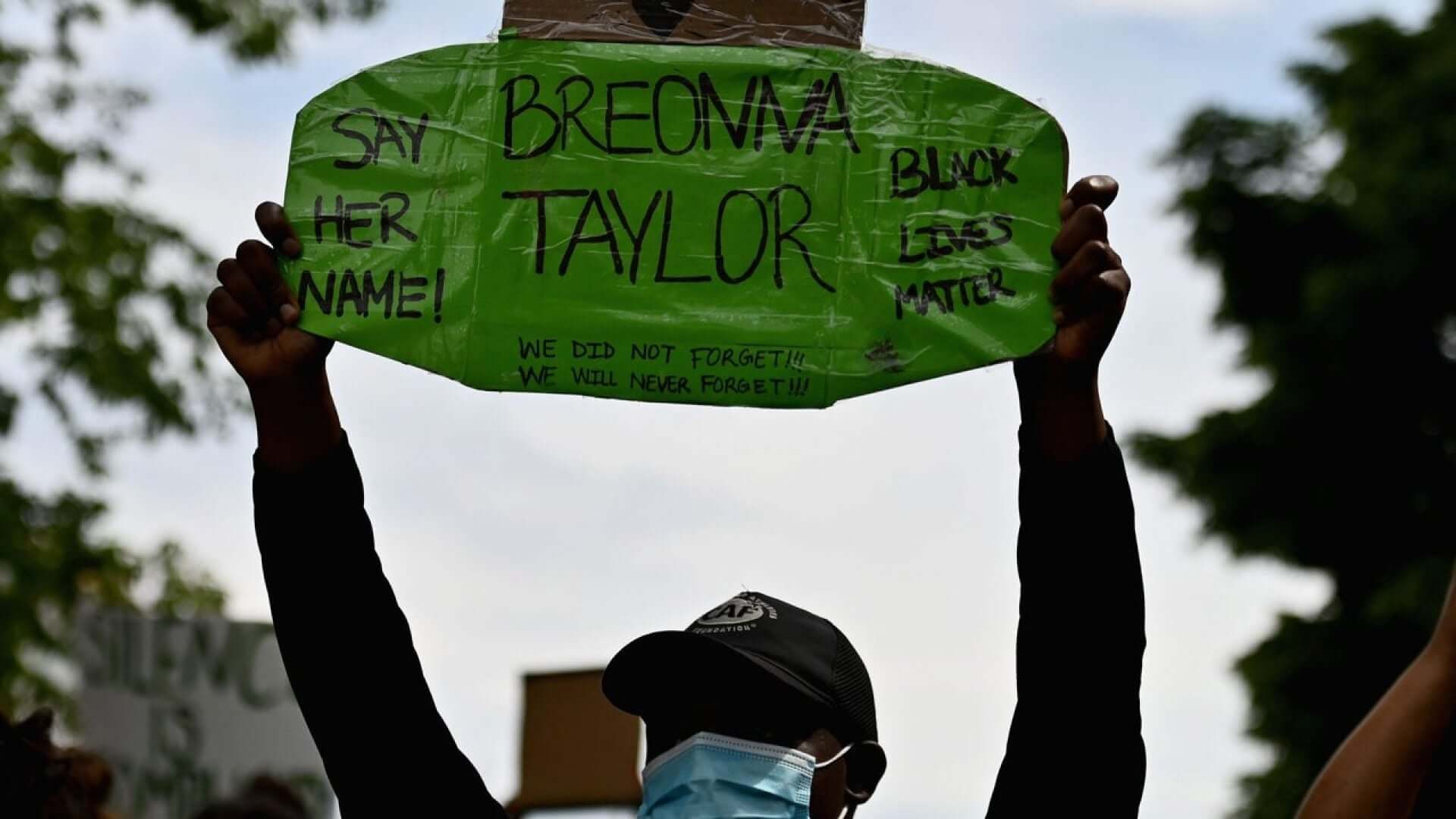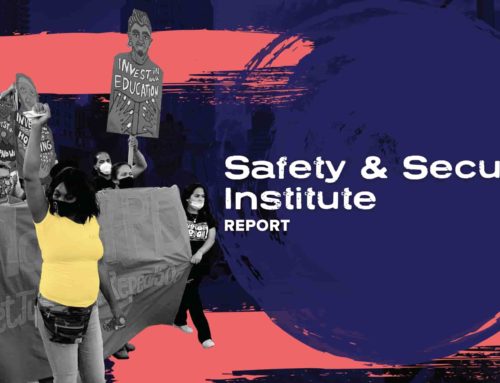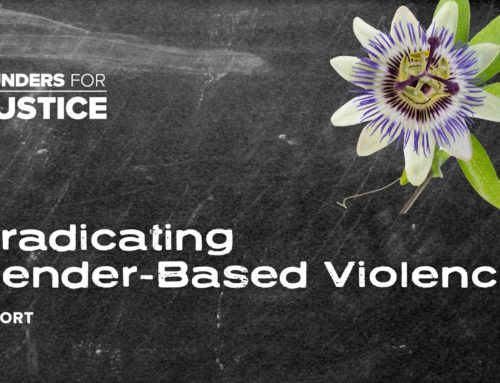BY MARIAME KABA & ANDREA J. RITCHIE · JULY 16, 2020
Calls for arrests of the officers who killed Breonna Taylor are intensifying daily – Breonna’s family, community, celebrities, social media, Black women and allies across the United States are demanding equal justice for our sister slain by police. Many of these calls point to the arrests of officers who killed George Floyd and Rayshard Brooks days and weeks after their deaths, compared to the fact that there have been no arrests in Breonna’s case more than 100 days after she was killed as she slept in her bed in her home. One officer, Brett Hankison, has been fired, the other two remain on administrative leave. Both the FBI and a special Kentucky prosecutor are investigating Breonna’s killing and whether charges can be brought against the officers.
We fully support demands for accountability for Breonna’s death, and her family and loved ones’ quest for justice. When agents of the state act violently against an individual, and in this case, callously and negligently takes their life, there is no doubt that collective responses are absolutely warranted and essential. Collective responses can include uprisings, demands that the officers involved be fired and never allowed to serve in positions of power again, community campaigns to defund the police, and calls for compensation, healing and repair for people harmed or families left behind. Calls for prosecution and imprisonment are just one of many possible collective responses to a clear injustice. Of course, individuals, families, and communities – including Breonna’s – are entitled to decide on their own paths for justice – including seeking justice in courts and criminal punishment.
As prison industrial complex (PIC) abolitionists, we want far more than what the system that killed Breonna Taylor can offer – because the system that killed her is not set up to provide justice for her family and loved ones. Experience shows that officers who harm are rarely arrested by the departments that employ them, and prosecutions and convictions are even more unlikely. Since 2005 there have only been 110 prosecutions of police officers who shot people, while police have killed 1000 people a year on average since 2014. There were convictions in less than 42 cases, usually on lesser charges. Even when convicted, police officers’ sentences – such as the 2 year sentence handed down to Johannes Mesherle for killing Oscar Grant by shooting him point black in the back of the head on a subway platform as he lay on the ground, the 3 year sentence for former Chicago Police Commander Jon Burge, who tortured confessions from over 100 Black men and women, or the 7 year sentence Jason Van Dyke is currently serving for murdering Laquan McDonald – rarely bring satisfaction or healing to families and harmed communities.
As prison industrial complex (PIC) abolitionists, we want far more than what the system that killed Breonna Taylor can offer – because the system that killed her is not set up to provide justice for her family and loved ones.
The number of prosecutions of police officers has not increased in spite of consistent uprisings and attention to police violence over the past decade – because the law ultimately protects them. The officers who killed Breonna Taylor will claim self-defense because a confused, half-asleep person defending his home and his fiancée against what he reasonably believed to be a home invasion fired shots. And, even if they are arrested and brought to trial, if past experience is any indicator, the law will once again provide them with cover for killing another Black person. Meanwhile, countless Black women and trans people who act in self-defense when police fail to protect them languish in prison, denied the right to assert self-defense because our legal systems deems that they have no legitimate selves to defend, while consistently legitimizing the use of deadly force by officers who “reasonably” believe their lives are in danger, no matter how flimsy or rooted in deeply entrenched criminalizing narratives about Black people this belief might be.
Why are we asking the police to stop being the police over and over again? Ultimately, calls for collective responses rooted in arrests and prosecution are likely to lead to dead ends and deep disappointments. But even if successful, the arrest, conviction and sentencing of individual cops represent an exception to the rule: the rule is impunity. Focusing on arrests leaves the whole system intact. As the popular chant goes, “indict, convict, send the killer cops to jail, the whole damn system is guilty as hell.” The answer to why calls for arrests and prosecutions are unlikely to bear fruit, or bring about fundamental change to prevent future killings, is in the second half of the chant – which highlights the fundamental flaw in the demand reflected in the first half. We want to direct our energies toward collective strategies that are more likely to be successful in delivering healing and transformation, and to prevent future harms. Families and communities deserve more than heartbreak over and over again each time the system declines to hold itself accountable.
Beyond strategic assessments of what is most likely to bring justice, ultimately, we must choose to support collective responses that align with our values. Demands for arrests and prosecutions of killer cops are inconsistent with demands to #DefundPolice because they have proven to be sources of violence not safety. We can’t claim the system must be dismantled because it is a danger to Black lives and at the same time legitimize it by turning to it for justice. As Angela Y. Davis points out, “we have to be consistent” in our analysis, and not respond to violence in a way that compounds it. We need to use our radical imaginations to come up with new structures of accountability beyond the system we are working to dismantle.
This is neither a popular nor easy position to take. It’s really, really hard. People who have been or who see their loved ones arrested, prosecuted, incarcerated, and killed for the slightest infraction – or none at all – want the system to act fairly by arresting, prosecuting and incarcerating those who harm and kill us. People who have consistently been denied protection under the law desperately want the law to live up to its promises. There are ways to support families calling for arrests without legitimizing the system, including by meeting material needs, providing safety for families and communities, and working to disempower police.
Turning away from systems of policing and punishment doesn’t mean turning away from accountability. It just means we stop setting the value of a life by how much time another person does in a cage for violating or taking it – particularly when the criminal punishment system has consistently made clear whose lives it will value, and whose lives it will cage.
We want to invite a broader and deeper conception of justice for Breonna Taylor and other survivors and family members harmed by police violence – one rooted in reparations, modeled on Chicago’s recent successful struggle for reparations for survivors and families of people tortured by former Chicago Police Commander Jon Burge. The reparations framework outlines 5 elements – repair, restoration, acknowledgment, cessation and non-repetition.
Under this framework, there is no question Breonna’s family is entitled to accountability – including immediate termination of the officers involved in her killing, and banning them from any future position that would allow them to carry a weapon or hold a position of power that can be abused in the way they abused it in Breonna’s case. They are also entitled to a process through which the officers must hear and be accountable to their pain, know the full value of the life they took, and make amends to our collective satisfaction. Breonna’s family is entitled to repair – compensation for their pain and suffering, without the necessity of having to endure lengthy litigation during which their loved one’s reputation, history, associations, character will be assailed, without having to look over and over at an incident report that states that no one was injured when their daughter and sister bled out in her bed in a hail of bullets, and without having to pay extensive litigation costs and undergo additional suffering through the process. They are also entitled to restoration and healing services.
Turning away from systems of policing and punishment doesn’t mean turning away from accountability.
Under a reparations framework Breonna’s family – and all of us – are also entitled to more than an individualized response to what is a systemic problem. We are entitled to immediate cessation of the actions that caused her death – no knock warrants, to be sure, but also short knock warrants, and dangerous drug raids in all their forms. And all of us are entitled to non-repetition, an end to the conditions that produced her death, including an end to the drug war that killed her, and the forces of gentrification that brought police into her neighborhood. It is long past time for an approach to drug use that saves lives instead of ending them – whether in a raid or in a cell – and a reckoning with the ways in which economic policies are driving deadly policing practices.
The Movement for Black Lives recently introduced the BREATHE Act, which enshrines demands of the Vision for Black Lives 2020 and calls for reparations for survivors of police violence – and the families of those who did not survive – and for people impacted by the drug war – both of which would offer far more than prosecutions in Breonna’s case. The M4BL Reparations Now toolkit offers an understanding of how these demands were actualized in Chicago, and how they fit into larger calls for reparations for the long legacy and continuing impacts of chattel slavery that produced not only Breonna’s death, but that of George Floyd, Tony McDade, Remmie Fells, Breonna Hill, Rayshard Brooks, Elijah McClain, Brayla Stone, and so many more.
The Louisville City Council recently announced a resolution calling for an investigation into the Mayor’s administration and the events leading up to Breonna’s killing, as well as police responses to the protests calling for justice in her case. This process could serve as a first step to a more comprehensive, reparations-based approach to Justice for Breonna.
Breonna, and all of us, deserve so much more than arrests and prosecutions of individual officers can offer. We are demanding a bold and expansive version of justice in her name.



